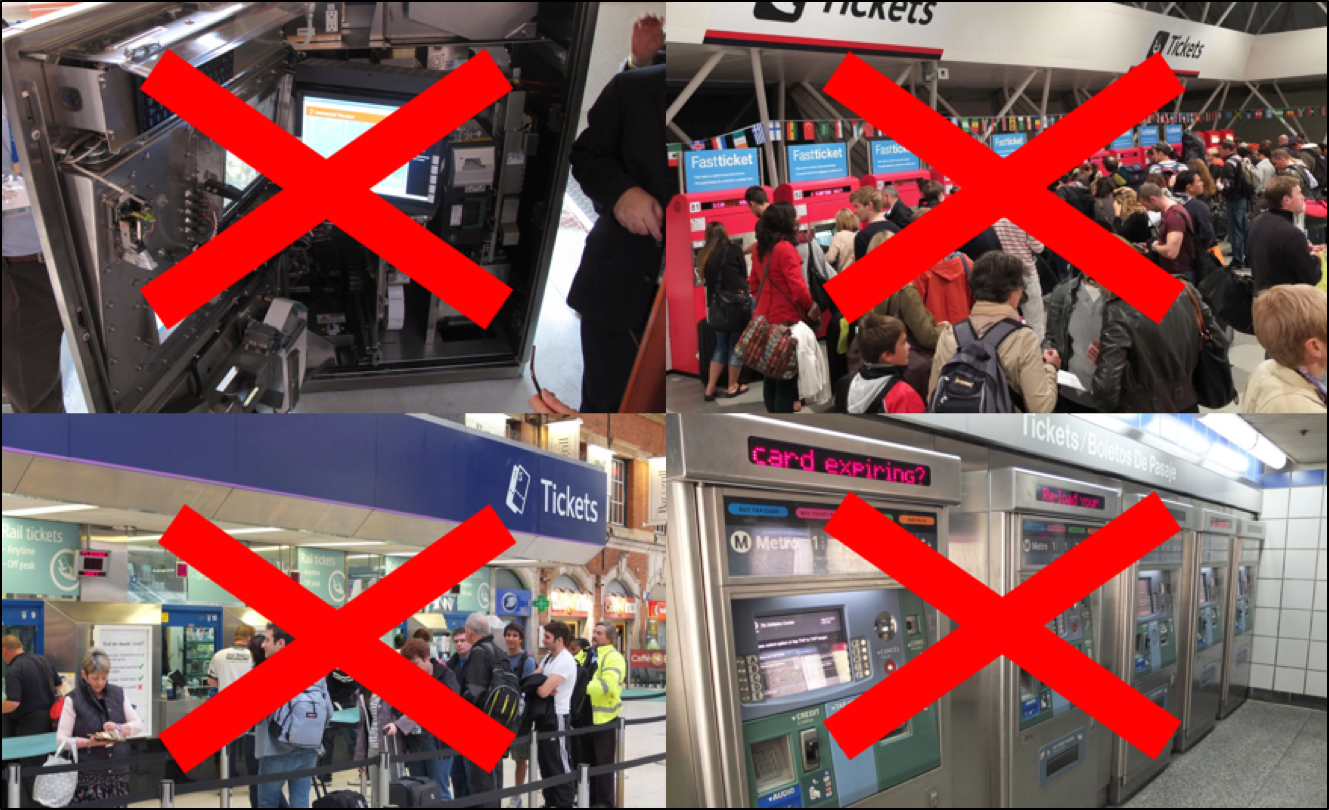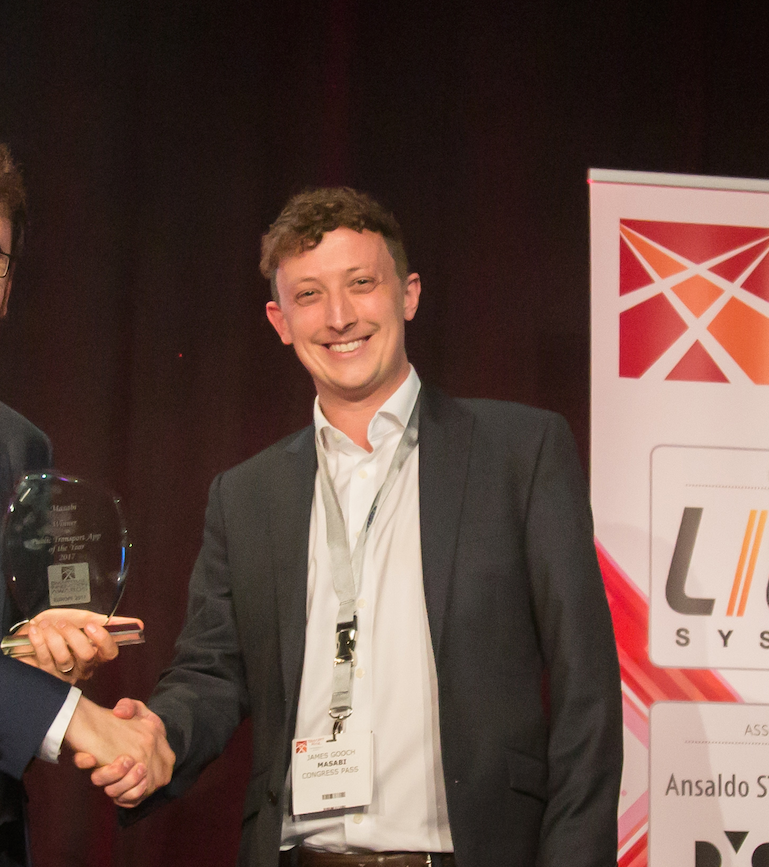When moving away from your current paper or smartcard solution the standard answer is to install an expensive contactless or closed loop smartcard system and then add in mobile ticketing later on, right?
Wrong.
Mobile Ticketing should be the first layer to add to your ticketing mix, then EMV contactless.
Why?
Because mobile ticketing is quicker to install, delivers more value and has higher adoption levels, all at lower cost.
EMV contactless is a fantastic technology but is slower to deploy and adoption levels are years behind smartphone in almost all territories. In our view it makes more sense to deploy mobile ticketing first, then bring in EMV a few years later, when adoption has caught up.
In this blog post we look at the future of transport ticketing and why we believe in the ‘Mobile First’ approach.
The Future of Transport Ticketing
The mobile revolution means all of us are already carrying a device in our pockets which can be a ticket machine, ticket and a travel assistant.
Today your mobile can tell you how to ride somewhere and can also facilitate the journey, including processing payments and downloading the tickets – bringing an Uber-like level of convenience to using public transport.
You are now able to make a journey on public transport and you don't have to spend any extra time finding money, finding somewhere to buy a ticket then waiting in line for the privilege.
When we talk about using the things in the passenger’s pocket, essentially we're moving away from the old fashioned world of ticketing where transport providers (authorities and operators) issue passengers with physical ticket media. Both mobile and EMV contactless technologies are facilitating this approach, but at different speeds and with different costs.
In the past transport providers will either give you an old fashioned magnetic paper ticket, or a smartcard.
Unfortunately, this means you need complex infrastructure to facilitate that payment and give you a piece of plastic, or a piece of paper, to allow you to travel.
The future of ticketing turns this approach around to say, we shouldn't have all that infrastructure and shouldn't give special single purpose things to the public because that's expensive.
When you run a system like Octopus or Oyster you're essentially running a private currency with its own private bank. You have facilities that change money from a local currency into transit currency (top up machines), and then you have to issue the cards, (like being a credit card company), and also provide the after sales card replacement and servicing. The problem is, none of this business activity has anything to do with running transport services.
We believe in flipping this approach around and saying, what have you got in your pocket, let's use that as a ticket. If you have a phone, let's use a phone. If you have a contactless bankcard, let's use the contactless bankcard. If you have a wearable, that's a payment device, let’s use that as well. If you're one of the unbanked, where you're somebody without a smartphone, we'll use something that convenience stores already have in the shape of receipt paper printing which can turn 0.001 cents worth of paper into a smart ticket as well.
But what we're not going to do is start issuing smartcards, we're going to use stuff that already exists in the market, and in doing so, slash capital and operating costs, and reduce material waste.
The Mobile First Approach
You might imagine that as a mobile ticketing company we would say that the mobile phone is the only thing you need as a ticket. But we don’t. We don’t believe in a mobile only approach, as it won’t suit all passengers, but we strongly believe in ‘Mobile First’.
Because of rapid roll out, rapid adoption and low costs, mobile should not be the last option you add to your ticketing mix. It should be your first.
There is no longer the need to invest in an expensive smartcard system when an appropriate mobile ticketing solution gives you a passenger-pleasing technology upgrade, a huge sales capacity increase, queue reduction, operational cost saving and can also be the first step on the road to full account based ticketing.
By installing a mobile ticketing solution that includes a back office capable of account based ticketing, and gradually rolling out readers that support more than one token media type you can start to introduce account based products over time and add in other forms of token as and when required.
This means you no longer need to first install an expensive smartcard or contactless system to start with account based ticketing.
Mobile ticketing can operate both as a traditional proof of payment style ticket (data on the ticket - suitable for last minute tickets) and also enable account based ticketing (static token & data in the cloud, subject to synchronisation delays), allowing you to feed in and experiment with account based products as you move to full account based ticketing.
Because account based ticketing is not yet great at last minute top ups or last minute purchases (hence TfL retaining the Oyster card) we encourage you to start with a gradual roll out of account based products, mostly for period passes, while comms and business processes get perfected. You can then move to 100% account based ticketing in the future when connectivity has improved. That’s also a strong reason why we believe in the Mobile First approach, ahead of account based.
The mobile phone has revolutionised almost everything we do and the urban mobility sector is no different – just look at Google Maps and Uber.
Transport ticketing should not be about one technology or another, it should be about allowing passengers to choose whichever option suits them best. It is about making it as cost effective as possible for transport providers while making it easy to use and convenient for passengers. That’s why we believe the future of transport ticketing is ‘Mobile First’.
About JustRide:
With JustRide we are building a platform that is ready for the future of transport ticketing. While we provide mobile ticketing, we are effectively agnostic about whether or not mobile (be it barcode, NFC or BLE) is used as the ticket medium. All of our validation and back-end systems are architected to support all technologies, while at the same time offering a clear migration path to account based ticketing.
To learn more about the JustRide platform please email me at: James.gooch@masabi.com


